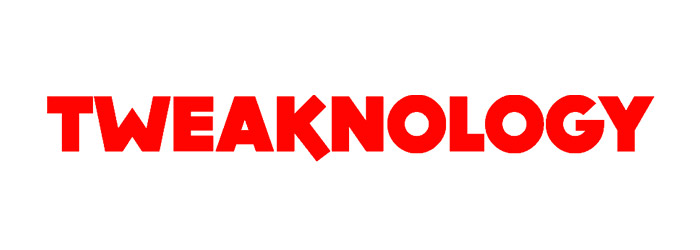Online education has come a long way since its inception, and edx.org is one of the latest and most innovative platforms to offer online courses. With over 20 million learners worldwide and partnerships with over 150 universities and institutions, edx.org is changing the game for online education. In this blog, we’ll explore the features and benefits that make edx.org a unique and valuable resource for learners and educators alike.
About this course
Government works best when residents are straightforwardly taken part in strategy making and public help conveyance. This sociology course investigates resident commitment and the job residents can play in effectively forming public strategy.

All through the course, you will find out about state-of-the-art examinations and speculations connected with resident commitment, and instances of ways residents and legislatures are cooperating in better approaches to work on their social orders.
This course was created in association with numerous people and associations. We have cooperated with top specialists from a great many fields and nations to introduce this course, making a really worldwide staff. We have additionally cooperated with 4 driving organizations – the London School of Financial matters, Abroad Advancement Foundation, Participedia, and CIVICUS – who play taken driving parts in the improvement of every week’s satisfaction.
What you stand to gain?
- What resident commitment is and why it is important?
- The job that residents can play in effectively molding the public approach
- How connecting with residents can further develop public help conveyance
- The effect of late developments in data and correspondences innovation
Schedule
The outline will give a course guide and make sense of the reasoning behind this course — why this subject, and why now?
1. Resident Commitment: What It Is and Why It Is Important?
This week inspects the hypothetical underpinnings of resident commitment and how it can prompt better improvement results. We start by investigating the definitions and history of resident commitment, as well as related ideas like straightforwardness, responsibility, responsiveness, and comprehensiveness. We then, at that point, take a gander at the idea of the input circle, and the distinctions between natural and instrumental methodologies. Next, we look at the pivotal job of sociopolitical setting and the empowering climate, and lastly present the idea of vital and strategic ways to deal with resident commitment.
2. Connecting with Residents for Further developed Policymaking
This week investigates the job that residents can play in effectively molding public arrangement. We start by inspecting how residents partake, investigating the distinctions among ‘good and bad’ types of commitment and posing vital inquiries, for example, who ought to take part, how could members connect with leaders, what data do members need, and what will support mean for strategy choices. Then, we study instances of publicly supporting and open development that are assisting legislatures and residents with bettering associates. At long last, we unload why residents take part, moving past the simple estimation of expenses and advantages portrayed in the reasonable decision model to an examination of more extensive variables that impact cooperation.
3. Can Connecting with Residents Bring Better Administrations?
In this week we look at the job of resident commitment to public assistance conveyance. We initially unload various originations of the public authority resident relationship and afterward investigate the manners in which residents can act as dynamic specialists of, as opposed to latent beneficiaries in, the conveyance of public administrations. We then give a top to bottom glance at a scope of resident commitment projects around here by investigating the strategies, devices, boundaries to consideration and variables for progress of contextual investigations, especially in non-industrial nation settings.
4. Advancements in Resident Commitment
Playing framed the part of resident commitment during policymaking and administration conveyance, the last week researches ongoing developments in resident commitment. We start by looking at how late advances in data and correspondence innovation (ICT) can be utilized to upgrade resident commitment from a human improvement point of view, and survey probably the most convincing new improvements around here. Then, we investigate the motivations behind why a portion of these creative methodologies prevail while others fall flat, and take a gander at how crossover draws near – those that join ICT devices with conventional techniques – are being utilized trying to expand improvement results.
5. Resident Commitment to Practice
The last module of this course examines resident commitment to rehearse. We hear from nearby specialists executing different resident commitment approaches in different areas including water, wellbeing, and training in Ghana and Kenya. They talk about how resident commitment systems and instruments are adjusted for their particular nation setting and area, analyzing common sense difficulties and examples learned. We likewise take a gander at Korea’s creative way to deal with including residents in the review of public administrations.
We close the course with a survey video, as well as ‘source of inspiration’ recordings from high-profile pioneers in government, common society and the scholarly community and to give you substantial subsequent stages to try your insight.
6. Access to quality education
One of the primary goals of edx.org is to make high-quality education accessible to everyone, regardless of their location or financial situation. edx.org offers courses from some of the world’s top universities, including Harvard, MIT, and Berkeley, among others. These courses cover a wide range of subjects, from computer science and engineering to humanities and social sciences.
By offering courses from top universities, edx.org ensures that learners have access to quality education that is on par with traditional classroom education. This access is especially important for learners who may not have the opportunity to attend a traditional university due to financial or geographical constraints.
7. Flexibility and convenience
One of the main advantages of online education is its flexibility and convenience. edx.org takes this to the next level by offering courses that are designed to fit into learners’ busy schedules. Most edx.org courses are self-paced, meaning learners can complete them at their own pace, on their own schedule. This flexibility is especially useful for learners who work full-time or have other commitments that make it difficult to attend traditional classes.
In addition, edx.org courses can be accessed from anywhere in the world, as long as learners have an internet connection. This means that learners can take courses from top universities around the world without having to travel or relocate.
8. Interactive and engaging learning experiences
edx.org courses are not just lectures that are recorded and uploaded online. Instead, they offer interactive and engaging learning experiences that are designed to keep learners engaged and motivated. For example, many edx.org courses include interactive quizzes and assignments that learners can complete to test their knowledge and skills. In addition, many courses include discussion forums where learners can connect with other learners and instructors to ask questions and share their insights.
edx.org also offers a range of educational tools that help learners visualize and understand complex concepts. For example, some courses include interactive simulations or visualizations that help learners understand scientific or mathematical concepts.
9. Certification and career development
For learners who are looking to further their careers, edx.org offers a range of certification programs that can help them gain valuable skills and credentials. Many courses on edx.org offer certificates of completion that learners can use to demonstrate their knowledge and skills to employers. In addition, edx.org offers professional education programs that are designed to help learners develop the skills they need to advance in their careers.
edx.org also partners with companies and organizations to offer MicroMasters programs, which are a series of graduate-level courses that are recognized by employers as valuable credentials. These programs are designed to help learners develop the skills they need to advance in their careers and often include opportunities for learners to work on real-world projects or gain hands-on experience.
Conclusion:
edx.org is a game-changer for online education, offering learners access to high-quality education from top universities around the world. With its flexible and convenient courses, interactive and engaging learning experiences, and certification and career development programs, edx.org is a valuable resource for learners who are looking to further their education and careers. As the world continues to move towards a more digital future, platforms like edx.org will play an increasingly important role in providing quality education to learners around the world.





